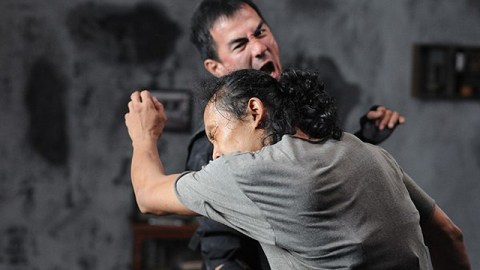Soft Power through a Rock’em Sock’em Action Flick

I’m always fascinated by pop culture products that become cultural catalysts. More specifically, I’m particularly interested in foreign exports that are so interesting, exciting, addictive or just plain weird that they motivate large populations in overseas markets to become fans and followers.
An interest in any foreign culture needs to start somewhere. And very often, the spark–that might lead to a truly cultured and sophisticated understanding and appreciation of another’s country–is something silly, banal or populist. And there’s absolutely nothing wrong with that. Because every journey needs to start somewhere.
I have some friends that I consider to be real Japan experts who admit that their interest in that country started with manga (comic books); others became obsessed with Japan because of its food. And some guy friends even sheepishly admit it’s because they have a thing for the women there.
One catalyst, that for decades has motivated many Westerners to start learning about Asia, is martial arts. The silver screen antics of exponents like Bruce Lee, Jackie Chan, Jet Li, Donnie Yen, Steven Seagal, Chuck Norris, Jean-Claude Van Damme and even Ralph Macchio have helped fill dojos from coast to coast for years. For this group (of mostly men), first contact with Asia comes from an amazing cinematic experience, followed by putting on a white gi and getting the crap kicked out of them week after week.
I don’t think it is unfair to say that when the majority of Americans think about martial arts, they think about forms coming from China, Japan and Korea. After all, it is martial arts systems from these Northeast Asian countries that are most often seen on screen. But Southeast Asia is also home to many potent and exciting systems. Take Kali for example. This Filipino fighting system is fast, effective and amazingly dynamic. It has also been used as one of the main fighting systems in several popular action films from Hollywood, such as The Book of Eli, the Bourne movies, Blade, some of the Resident Evil movies, and even Mission Impossible 3. So you’ve definitely seen this system. You just didn’t know you saw it. Which is the problem. If someone has no idea what they’ve seen, they’ll never take the time to try and find out more about it.
And that’s partly why I’ve been really excited about Welsh filmmaker Gareth Evans’ Indonesian martial-arts action flick The Raid: Redemption, which opened Stateside about a month and a half ago.
Admittedly, The Raid is hardly the most intellectually stimulating movie around. And it’s not going to be for all audiences; my wife, for one, hated it. But action movie fans are going to go gaga over ever adrenaline-injected, blood-soaked minute of what many critics have heralded the best action flick in decades. I’ll admit that I thoroughly enjoyed The Raid.
But what I like best about this movie is that it showcases silat, an Indonesian martial arts system, to tremendous effect. As the film gains more and more popularity (and I have no doubt it will), interest in silat will grow. And logically, so should interest in Indonesia. Which is very important.
Indonesia is the world’s third largest democracy. It is the world’s largest achipelagic state and it is also the home to the world’s largest Muslim population. It is a country that, under the right circumstances, could become one of the dominant players in the global economic or geo-political sphere. But I’d wager that many Americans know nothing about the country beyond Bali–and much of that knowledge thanks to an overly-indulgent book and the horrendous movie it was turned into.
Now, I know that not every kid that wants to learn a martial art will make the effort to delve deeper into the land of its origin. But some might. Similarly, not every kid that likes Pho will want to understand Vietnam; but, some might. And not every K-Pop fan will want to learn Korean and learn more about the country; but the stats are showing that a lot of them are. Pop culture products are fantastic ambassadors, and are wonderful ways to create a real and potentially long-term interest in a foreign culture.
So, if a pop culture product like The Raid can lead people to silat, which may in turn lead a few of those people to a greater and richer understanding of Indonesia, I think that’s fantastic.





